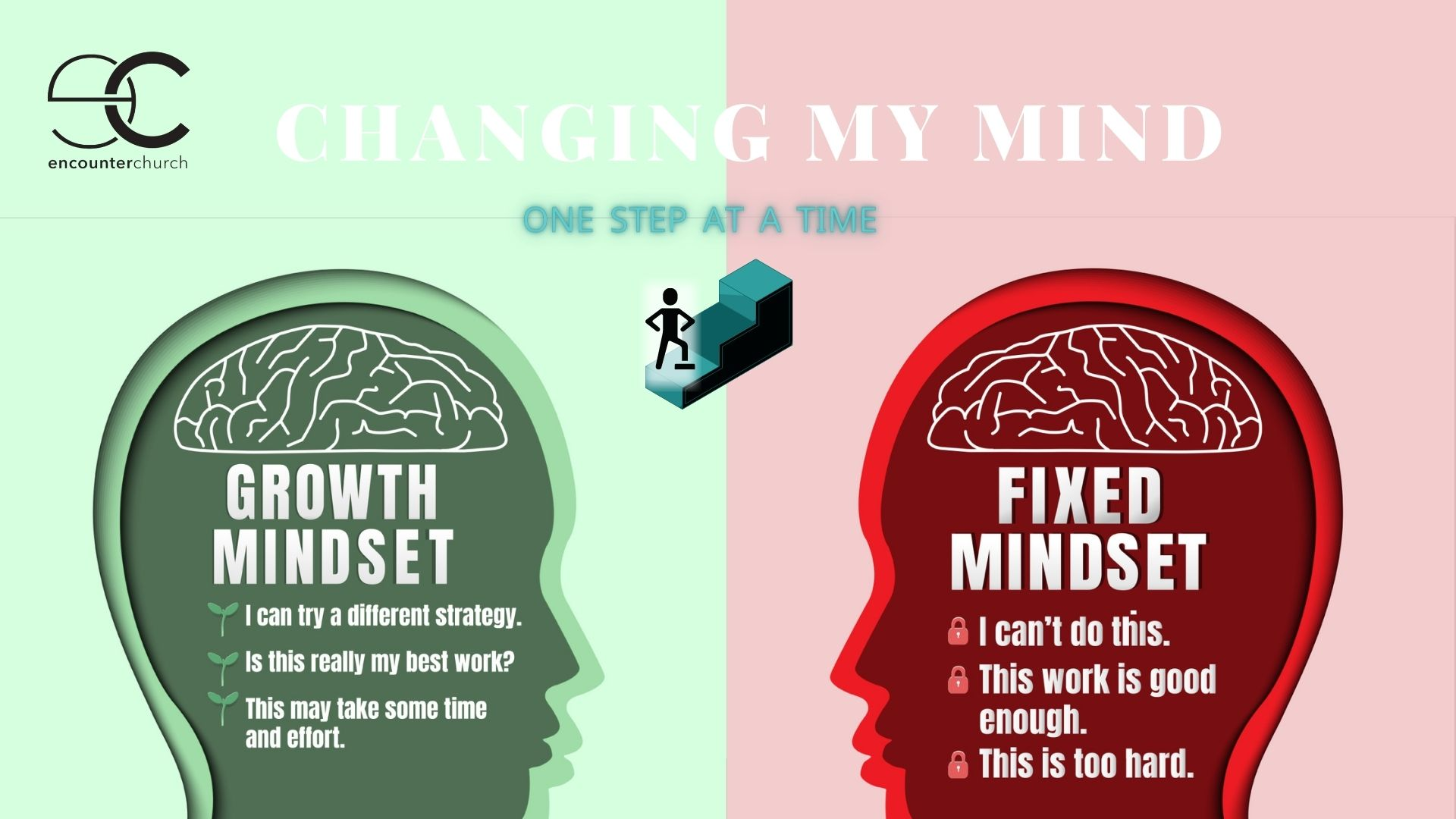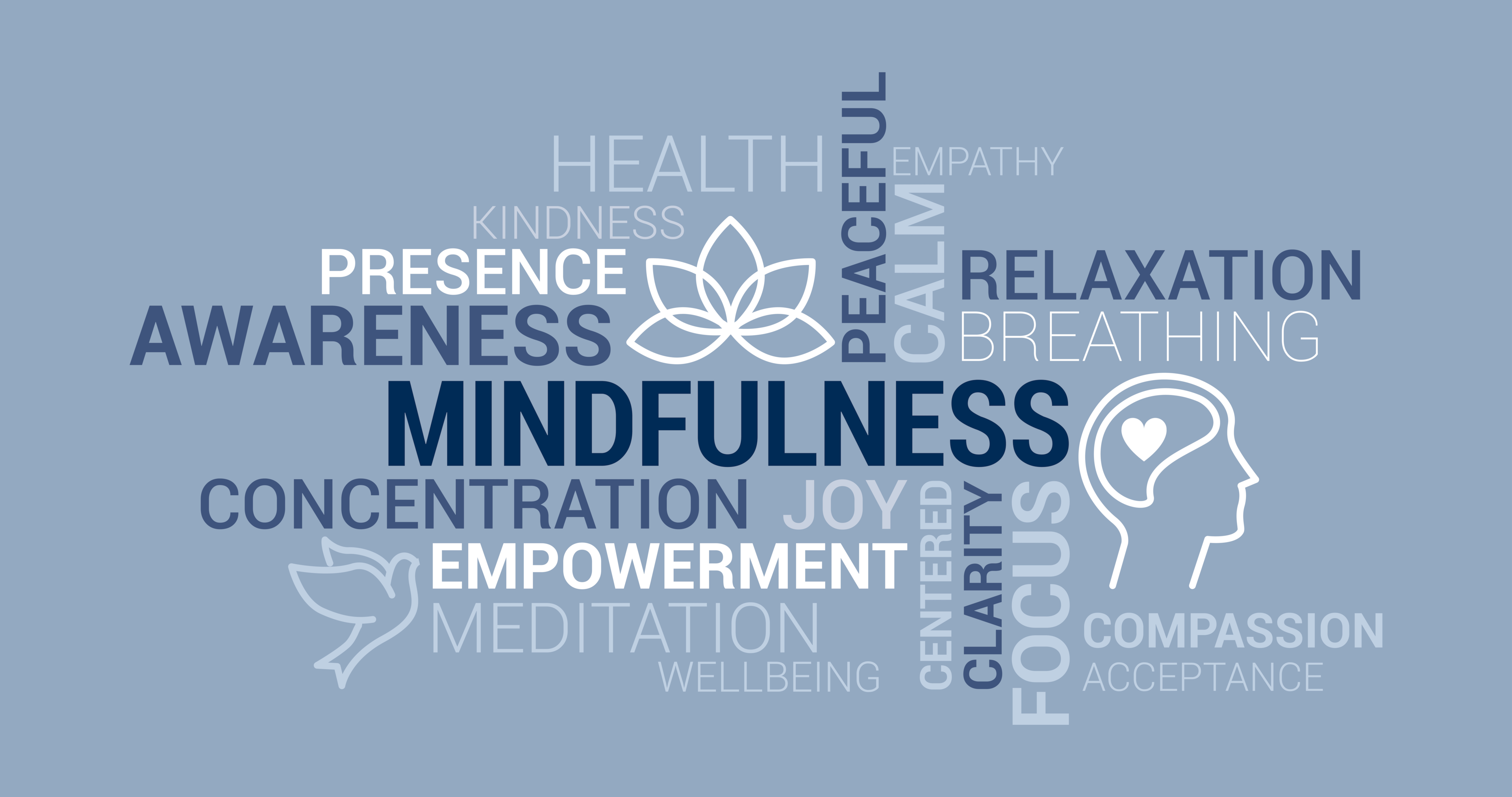"Unlock the Secret to a Winning Mindset: The Surprising Power of Positive Thinking!"

"Unlock the Secret to a Winning Mindset: The Surprising Power of Positive Thinking!"

The power of our mindset can be the driving force behind success or failure in both our personal and professional lives. Did you know that embracing challenges, persisting through setbacks, and recognizing the potential for intelligence to grow are all essential components of a growth mindset? With numerous benefits such as increased happiness, improved achievement, and even an impact on our physical well-being, adopting a healthy mentality is vital for overall success.
In this blog post, we will explore the different types of mindsets - fixed vs. growth - dive into their effects on our daily lives, and share practical strategies for cultivating a more resilient and positive outlook.
Key Takeaways
-
Mindset refers to an individual's beliefs and attitudes that shape their behavior and outlook. It can be categorized as a fixed or growth mindset.
-
Those with a growth mindset are more likely to embrace challenges, put in the effort, and persist in the face of setbacks, leading to personal growth and success.
-
To cultivate a growth mindset, it's crucial to assess your current thinking patterns and beliefs by practicing self-reflection exercises, recognizing and challenging limiting beliefs, seeking feedback from others, embracing failure as an opportunity to learn and grow, focusing on effort and progress rather than just outcomes, adopting a positive attitude towards challenges, setting specific learning goals.
Understanding Mindset

Mindset refers to an individual's beliefs and attitudes that shape their behavior and outlook on life and can be categorized as a fixed or growth mindset.
Definition Of Mindset
A mindset can be defined as a collection of attitudes, beliefs, and perceptions that shape an individual's behavior proper motivation, outlook, and mental attitude. These beliefs significantly influence one's choices and determine how people approach tasks and challenges.
Psychologist Carol Dweck has extensively researched the concept developmental psychology of mindset and its impact on success or failure. According to her findings, two primary types of mindsets are fixed and growth.
A fixed mindset is based on the belief that intelligence or talent are innate traits that cannot be changed significantly. On the other hand, individuals with growth mindsets believe they can develop their abilities through effort, learning from experiences, and perseverance over time.
Fixed Vs. Growth Mindset

Psychologist Carol Dweck first introduced the distinction between fixed and growth mindsets to describe people's beliefs about their learning capabilities.
People with a fixed mindset often view their abilities as unchangeable, focusing on proving themselves rather than enhancing their skills. They may avoid challenges or become discouraged when faced with setbacks.
On the other hand, those who adopt a growth mindset believe in their potential for improvement and progress.
For instance, two students receive low scores on an exam: one with a fixed mindset might feel defeated and assume they're just not smart enough to grasp the material; meanwhile, another student with a growth mindset would likely see this setback as an opportunity to pinpoint areas of difficulty within the subject matter – acknowledging room for improvement with increased effort applied moving forward.
The Power Of Beliefs

Our beliefs hold immense power as they shape our thoughts, feelings, and actions daily. These profoundly ingrained convictions have tremendous influence over how we perceive ourselves and the world, affecting everything from our decision-making processes to interactions with others.
Developing a solid understanding of these powerful beliefs is essential to adopt a growth mindset that promotes continuous learning and development. By recognizing their limiting thoughts or assumptions about themselves, individuals can begin to challenge those beliefs and replace them with more empowering ones.
This shift in perspective enables them to approach obstacles with resilience and develop new strategies for success rather than succumbing to setbacks or failures.
In the context of Carol Dweck's research on fixed versus growth mindsets, it becomes increasingly clear that cultivating an attitude focused on potential improvements equips people for achieving personal mastery across various spheres of life.
The Importance Of Mindset

Mindset is crucial as it significantly impacts personal growth and success, personal relationships, and the capacity to handle challenges.
Influence On Success And Personal Growth
A few years ago, I had the chance to meet a group of extraordinary children who changed my life in surprising ways. These children, instead of being discouraged by their failures, saw them as opportunities for learning. I became their admirer, as they knew something I didn't: the power of mindset. I was determined to figure out what they knew and understand how a certain mindset could turn a failure into a gift.
The children understood that human qualities, such as intellectual skills, could be cultivated through effort. They knew they were growing, becoming smarter. Not only were they not discouraged by failure, they didn't even think they were failing. They thought they were learning. In contrast, I believed that human qualities were carved in stone. You were smart or you weren't.
That's when I came across the research of Professor Lewis and Virginia Eaton from Stanford University, experts in psychology. Their work had a tremendous impact on my perspective. These distinguished professors discovered that a person's mindset profoundly affects their true potential. Their work earned them multiple lifetime achievement awards, underscoring the importance and relevance of their research.
In her brilliant book, Dr. Dweck introduces us to two mindsets: fixed and growth. The children I met represented the growth mindset. In contrast, the fixed mindset suggests that a person's qualities are set and unchangeable. However, Dweck's book refutes alleged physical differences and encourages us to adopt a growth mindset.
A growth mindset allows us to understand that our initial talents do not determine our future. Instead, it offers us the possibility of constant improvement and development of new skills. It is an approach that builds lasting resilience and propels us to constantly better ourselves.
It's understandable that many people feel trapped in a fixed mindset, believing that their abilities and talents are innate and cannot be changed. But here's the secret: you have the power to change your mindset. You can embrace a growth mindset that will lead you to achieve your goals and unlock your true potential.
It's not just about getting a grade or achieving outstanding accomplishment. It's about something deeper and truer: lifelong growth. By adopting a growth mindset, you embark on a journey of self-discovery and development. You start to appreciate challenges as opportunities, learn from mistakes, and overcome obstacles with a healthy dose of self-esteem.
So, if you feel stuck in a certain personality, remember that you have the power to break free from it. By adopting a growth mindset, you can build lifelong resilience and supercharge your self-improvement journey. Remember, people differ, but a growth mindset allows you to unlock your true potential and achieve greatness.
Our mindset can significantly impact our success and personal growth. Those with a growth mindset are more likely to embrace challenges, put in the effort, and persist in facing setbacks.
This positive attitude towards learning and improvement can help individuals achieve their goals and reach their full potential.
Furthermore, research has shown that having a growth mindset can lead to more productive management styles, which can translate into career success. A manager with a growth mindset is more likely to encourage professional development among their employees and view mistakes as opportunities for learning rather than sources of blame.
For example, imagine two employees working on the same project—one with a fixed mindset who believes their abilities are unchangeable and one with a growth mindset who views challenges as opportunities for improvement.
The employee with the growth mindset is more likely to handle setbacks positively by seeking feedback from coworkers or analyzing what went wrong before trying again.
Impact On Personal Relationships

Mindset can have a significant impact on personal relationships. People with a fixed mindset may believe that their personality traits are set in stone, leading them to view conflicts and disagreements as unresolvable.
For example, consider two friends with different mindsets about their ability to maintain friendships. One friend has a fixed mindset, believing they are either "good" or "bad" at keeping companies without room for improvement or growth.
Research demonstrates that individuals with growth mindsets are more likely to engage in positive communication techniques like active listening and compromise when faced with conflict or disagreement within interpersonal relationships.
Capacity To Handle Challenges

A growth mindset enables individuals to handle challenges with greater resilience and determination. Those with a growth mindset view challenges as opportunities for personal growth and learning rather than insurmountable obstacles.
Research has shown that those with a growth mindset are better equipped to overcome challenges because they have developed the belief that hard work leads to success, even amidst struggles.
For instance, if an individual fails on a task, someone with a fixed mindset may conclude that he isn't good at it or will never learn how to do it well enough.
So having this kind of attitude can help us deal with life’s inevitable ups and downs while making progress toward our goals without giving up easily.
Identifying And Evaluating Your Current Mindset

To cultivate a growth mindset, assessing your current thinking patterns and beliefs is crucial to practicing self-reflection exercises, recognizing and challenging limiting beliefs, and seeking feedback from others.
Self-Reflection Exercises
Self-reflection exercises are an essential part of evaluating and understanding one's mindset. These exercises can be as simple as journaling about thoughts and feelings or engaging in mindfulness practices like meditation.
One effective self-reflection exercise involves creating a list of limiting beliefs that may be holding you back from achieving your goals. Once identified, challenge those beliefs by questioning their accuracy and considering alternative perspectives.
Through self-reflection, individuals gain a deeper understanding of themselves, leading to reduced stress levels, improved learning abilities, and better emotional regulation skills.
Keywords: self-reflection exercises, personal growth, and development., limiting beliefs, constructive criticism
Recognizing Limiting Beliefs

A limiting belief is a negative thought or idea that restricts personal growth and potential. These beliefs can be subtle, ingrained from childhood experiences or cultural conditioning, making them hard to recognize.
To overcome limiting beliefs, it's essential first to identify them. Reflection exercises like journaling are effective strategies for recognizing these thoughts and patterns.
Limiting beliefs harms individuals by preventing them from achieving their full potential and creating self-imposed limitations that hold them back.
Tony Robbins has dedicated online resources for identifying and overcoming limiting beliefs through visualization exercises to replace negative self-talk with positive affirmations, building confidence.
Seeking Feedback From Others

Identifying and evaluating your current mindset is crucial for personal and professional growth. Seeking feedback from others can provide valuable insight into how one's thoughts and beliefs impact their actions.
For instance, teachers play a critical role in shaping students' mindsets by providing specific types of feedback. When offering praise, avoiding general comments about intelligence and focusing on effort and progress fosters a growth mindset.
Moreover, seeking frequent feedback outside of the classroom is highly recommended too. Engaging colleagues or mentors with different perspectives can help identify limiting beliefs hindering growth or success opportunities.
Cultivating A Growth Mindset the new psychology of success

To cultivate a growth mindset, one must embrace failure as an opportunity to learn and grow, focus on effort and progress rather than just outcomes, adopt a positive attitude towards challenges, and set specific learning goals.
Embracing Failure And Learning From Mistakes
Cultivating a growth mindset involves embracing failure and learning from mistakes. Individuals with this mindset recognize that setbacks are growth opportunities rather than signs of incompetence or inadequacy.
For example, consider the career trajectory of Thomas Edison, who famously said he always succeeded but found 10,000 ways that didn't work in his pursuit to create the light bulb.
Moreover, individuals with a growth mindset can develop greater creativity and problem-solving skills by cultivating resilience and seeing challenges as opportunities for growth.
Focusing On Effort And Progress

To cultivate a growth mindset, foster outstanding accomplishment focusing on effort and progress is crucial. Instead of solely emphasizing the result, someone with a growth mindset values the process of learning and growing.
Putting in effort and taking steps toward achieving goals are essential markers of success.
For instance, imagine two students studying for a complicated exam. One has a fixed mindset that believes they either have the intelligence or don't; their efforts would stay the same perception.
The other student has a growth mindset that sees their performance on this exam not a car wreck as an opportunity to learn new material regardless of how well they perform compared to others.
Research shows us that focusing on effort helps build persistence since it creates feelings of accomplishment which subsequently develops motivation to acquire additional skills or knowledge toward reaching long-term goals – all essential elements in developing an unwavering dedication toward success with the right mindset and attitude!
Adopting A Positive Attitude
People with a fixed mindset —those who believe that abilities are fixed—are less likely to flourish than those with a growth mindset —those who believe that abilities can be developed. Mindset reveals how great parents, teachers, managers, and athletes can put this idea to use to foster outstanding accomplishment. In this edition, Dweck offers new insights into her now famous and broadly embraced concept. She introduces a phenomenon she calls false growth mindset and guides people toward adopting a deeper, truer growth mindset. She also expands the mindset concept beyond the individual, applying it to the
Adopting a positive attitude is one of the most important aspects of cultivating a growth mindset. This means approaching challenges and setbacks optimistically and focusing on growth opportunities rather than dwelling on failures or adverse outcomes.
One technique for adopting a more positive attitude is practicing gratitude. Recognizing the good things in your life, no matter how small they seem, can help shift your perspective toward positivity.
Ultimately, it's important to remember that adopting a growth mindset involves believing in the potential for learning and intelligence to grow and change over time, including embracing a positive outlook even in challenging situations.
Setting Learning Goals
Setting learning goals is a crucial step in cultivating a growth mindset. When we set goals for ourselves, we create a roadmap that helps us stay focused and motivated toward achieving our desired outcome.
For example, if you want to improve your public speaking skills, setting specific goals, such as attending an improv class or joining Toastmasters, can help you measure your progress over time.
Overall, goal-setting with a growth mindset is centered around believing in our ability to improve many areas of our lives through intentional effort and practice.
Overcoming Fixed Mindset Traits
To cultivate a growth mindset, it's crucial to overcome fixed mindset traits by practicing mindful awareness strategies, reframing negative thoughts, and challenging limiting beliefs.
Mindful Awareness Strategies
Overcoming fixed mindset traits is essential for cultivating a growth mindset. Mindful awareness strategies can help by highlighting negative thoughts and beliefs that limit personal growth.
One such strategy involves reframing negative self-talk into positive affirmations, which can change one's outlook on their abilities and potential.
Another conservative awareness strategy is challenging limiting beliefs through evidence-based thinking. This strategy encourages individuals to question the validity of their limiting beliefs by looking for evidence that contradicts them.
Doing so can help break down false ideas about oneself and allow for greater openness towards acquiring new skills or taking on challenges once seen as impossible.
Reframing Negative Thoughts
One common technique used in cultivating a growth mindset is cognitive reframing. This involves shifting negative thoughts or beliefs into more positive and constructive ones.
For example, instead of thinking, "I'm not good enough to succeed," one could reframe this thought into "I may face challenges, but I am capable of learning and growing through them." Reframing negative reviews in this way can help individuals view setbacks as opportunities for growth rather than insurmountable obstacles.
Another helpful strategy for reframing negative thoughts is to track one's thinking patterns.
Challenging Limiting Beliefs
Having a fixed mindset can lead to limiting beliefs that restrict our ability to learn, grow, and develop new skills in the long run. These beliefs stem from thinking that our abilities are predetermined and cannot be changed, which is not entirely true.
Limiting beliefs are states of mind or beliefs about ourselves that restrict us somehow. For example, if you think you need to improve at public speaking, a limiting belief could be thinking you'll never improve or become confident in front of an audience.
To overcome this fixed mindset trait, one needs to start by recognizing those negative thoughts as they arise and challenging them with positive affirmations or evidence-based facts.
The Role Of Environment In Shaping Mindset
The environment we surround ourselves with can significantly impact our mindset, from the people we interact with to the media we consume.
Surrounding Yourself With Positive Influences
Our social environment plays a significant role in shaping our thoughts, behavior, attitudes, and beliefs. We can promote happiness and well-being by surrounding ourselves with positive influences such as supportive friends and family members or participating in uplifting activities like practicing gratitude or meditation.
In addition to the people we surround ourselves with, physical locations can also positively influence us. Spending time in inspiring environments such as museums or libraries can encourage creativity and learning, while being around motivated individuals at work could help boost productivity.
It's essential to recognize that the environment we spend much time in, whether home or work, can significantly impact our mental health.
Creating A Supportive Network
Surrounding yourself with positive influences and creating a supportive network can be crucial in developing a growth mindset. People who believe in you, encourage your efforts, and provide constructive feedback can help you stay motivated and overcome obstacles.
Research has shown that the environment plays a significant role in shaping our mindset and mental well-being. The places we spend most of our time can influence our attitudes towards learning and personal growth.
Building solid relationships with individuals with a growth mindset helps us develop this thinking and enables us to model it for others.
Encouraging Growth Mindset In Others
To encourage a growth mindset in others, it's essential to praise effort over outcome, provide constructive feedback, and promote self-reflection.
Praising Effort Over Outcome
Praising effort and hard work over the outcome is essential because it motivates individuals with a growth mindset to continue learning and growing—research by Dr.
When the emphasis is placed on learning rather than just achieving good grades, it helps students feel more in control of their development and encourages them to take risks and try new things.
Ultimately, when we reward effort rather than results or innate ability, we foster grit and resilience essential for future success.
Providing Constructive Feedback
Giving feedback is an essential part of personal and professional growth. However, not all feedback is created equal. To provide constructive feedback that promotes a growth mindset, focusing on effort rather than innate traits or abilities is necessary.
Constructive feedback should also be specific and actionable.
Employers can create a culture of growth mindset in the workplace by providing constructive feedback that focuses on effort and offers actionable steps for improvement.
Encouraging Self-Reflection
Encouraging self-reflection is a crucial component in developing a growth mindset in individuals. By fostering the ability to reflect on experiences and learning from them, people can identify areas where they need to improve and develop strategies for personal growth.
For example, when students are encouraged to reflect on their academic performance, they can identify what worked well and what didn't. They can then set goals for improvement, such as seeking extra help or adopting new study habits.
Research has shown that reflection is essential in promoting personal growth and development. Studies have found that individuals with a growth mindset are more motivated and perform better academically.
Mindset And Career Success
A growth mindset can significantly influence professional development and career success, as individuals with this mindset are more willing to take on challenges, persist through setbacks, and continuously learn and improve their skills.
The Impact Of Mindset On Professional Development
Developing a growth mindset is essential for professional development and career success. A fixed mindset can result in stagnation, while a growth mindset allows individuals to embrace challenges, learn from mistakes, and continuously improve their skills.
A growth mindset is also linked to more productive management styles, making it essential to improve workplace skills. Employees who adopt a growth-oriented approach are likelier to have positive attitudes toward feedback and constructive criticism.
In summary, the impact of mindset on professional development must be balanced.
The Importance Of Promoting A Growth Mindset Culture In The Workplace
Promoting a growth mindset culture is crucial because it supports a healthy, thriving, resilient workforce. When we embrace a growth mindset, we view challenges and mistakes as opportunities to learn rather than failures that diminish our self-worth.
By promoting a growth mindset in the workplace, we can enable teams to reach their full potential. Instead of focusing solely on results or metrics-driven success, a growth mindset encourages us to prioritize learning and progress over perfection.
This creates an environment where team members feel empowered to experiment with new ideas and approaches without fear of punishment if they don't immediately succeed.
The Benefits Of A Growth Mindset For Personal And Professional Goals
Individuals who adopt a growth mindset tend to have more success in achieving their personal and professional goals. By believing in their ability to improve, they are likelier to put effort into learning new skills and overcoming challenges.
Having a growth mindset can also positively impact career development. Employers often see those with this mindset as more adaptable, resilient, and open-minded.
They are better equipped to handle setbacks or changes in the workplace, leading them toward more significant opportunities for advancement.
In summary, adopting a growth mindset can empower individuals to work harder toward their goals while being resilient through challenges that come up along the way.
Transform Your Mindset: Thoughts on Bible Teachings
The Bible has been a source of guidance and inspiration for millions of people around the world. Its teachings provide a framework for leading a fulfilling life, and its wisdom has been passed down through the generations. One of the key themes of the Bible is the power of our thoughts and mindset.
The Bible teaches that our thoughts have a profound impact on our lives. Proverbs 23:7 states, "For as he thinks in his heart, so is he." This verse emphasizes the importance of cultivating an optimistic mindset. Focusing on the good in our lives and maintaining a hopeful outlook can attract more positivity into our lives.
Furthermore, the Bible teaches that our thoughts can influence our actions. In Philippians 4:8, we are instructed to think about actual, noble, correct, pure, lovely, admirable, excellent, and praiseworthy things. By focusing on these positive attributes, we can make better choices and live more virtuously. Overall, the Bible's teachings on thoughts and mindset provide a powerful reminder of the importance of cultivating a positive outlook and focusing on the good in our lives.
Yes / No
When it comes to Bible teachings and mindset, there are many questions that people may have. One of the most common questions is whether or not a Christian should say "yes" or "no" to certain things. Here are a few thoughts on the matter:
Saying "yes" to God: Christians are called to say "yes" to God and to follow His will for their lives. This means saying "yes" to love, forgiveness, and serving others. It also means saying "no" to sin, selfishness, and pride.
Saying "no" to temptation: Christians are also called to say "no" to temptation and to resist the devil. This means saying "no" to lust, greed, and anger. It also means saying "yes" to self-control, humility, and patience.
Saying "yes" to grace: Christians are called to say "yes" to God's grace and trust in His mercy and forgiveness. This means saying "no" to condemnation and guilt and instead saying "yes" to hope and peace.
In summary, a Christian's mindset should be focused on saying "yes" to God and His will and saying "no" to sin and temptation. By doing so, they can experience God's love and grace.
Dos and Don'ts
When incorporating Bible teachings into one's mindset, there are certain dos and don'ts to remember. Here are a few guidelines to follow:
Dos
Do prioritize love and compassion. The Bible teaches that love is the most important commandment. Therefore, it is crucial to prioritize love and compassion in one's mindset. This means treating others with kindness and empathy, even in difficult situations.
Do seek wisdom and understanding. The Bible is full of knowledge and guidance for living a fulfilling life. Pursuing this wisdom and experience is essential, whether reading the Bible, attending church, or seeking advice from a spiritual mentor.
Do practice forgiveness. Forgiveness is a crucial aspect of Christian teachings. It is important to practice forgiveness not only toward others but also towards oneself. This can help to cultivate a mindset of peace and self-acceptance.
Don'ts
Don't judge others. The Bible teaches that judgment is reserved for God alone. Therefore, it is important not to judge others based on their actions or beliefs.
Don't hold onto anger or resentment. Holding onto anger or resentment can damage one's mental health and well-being. Letting go of these negative emotions and practicing forgiveness is essential.
Don't prioritize material possessions. The Bible teaches that material possessions are temporary and ultimately unimportant. Therefore, it is important not to prioritize material wealth over spiritual wealth.
By following these dos and don'ts, individuals can incorporate Bible teachings into their mindset in a healthy and fulfilling way.
5 Step Guide to Mindfulness and Mindset
A positive and mindful mindset is essential for leading a happy and fulfilling life. Here are five simple steps to help you cultivate a positive attitude and improve your overall well-being.
Practice Gratitude: Start each day by expressing gratitude for the things you have in your life. This could be as simple as appreciating the sunshine, a good cup of coffee, or the love of your family and friends. By focusing on the positive aspects of your life, you will develop a more positive outlook and attract more positivity into your life.
Meditation and Mindfulness: Take time each day to meditate and practice mindfulness. This could be as little as five minutes or as long as an hour. The key is to focus on your breath and be present in the moment. This will help reduce stress, improve focus and concentration, and increase overall well-being.
Positive Affirmations: Repeat positive affirmations to yourself throughout the day. This could be as simple as "I am worthy" or "I am capable." By repeating these positive affirmations, you will start to believe them and develop a more positive, self esteem-image.
Exercise and Movement: Incorporate regular exercise and movement into your daily routine. This could be as simple as taking a walk or practicing yoga. Exercise releases endorphins, which help to boost mood and reduce stress.
Surround Yourself with Positivity: Surround yourself with positive people, environments, and media. This could be as simple as listening to uplifting music or reading positive books. By surrounding yourself with positivity, you will attract positivity and develop a positive mindset.
By following these five simple steps, you can develop a more positive and mindful mindset and improve your overall well-being.
FAQs
When it comes to Bible teachings and mindset, people often have many questions. Here are some frequently asked questions and their answers:
Q: What does the Bible say about positive thinking?
A: The Bible encourages positive thinking and speaks about the power of our thoughts. Philippians 4:8 says, "Finally, brothers and sisters, whatever is true, whatever is noble, whatever is right, whatever is pure, whatever is lovely, whatever is admirable—if anything is excellent or praiseworthy—think about such things." This verse encourages us to focus our thoughts on positive things.
Q: How can I apply Bible teachings to my daily life?
A: One way to apply Bible teachings to daily life is to read and study the Bible regularly. This will help you learn more about what the Bible teaches and how to use it. Additionally, you can pray and ask God for guidance and wisdom in applying these teachings to your life.
Q: How can I change my negative mindset?
A: Changing a negative mindset can be challenging but possible. One way to start is by identifying negative thought patterns and replacing them with positive ones. Another helpful practice is to focus on gratitude and the positive things in your life. Additionally, seeking support from a counselor or therapist can be beneficial in changing negative thought patterns.
Q: Is it possible to have a mindset aligning with the Bible and modern-day values?
A: Yes, it is possible to have a mindset aligning with the Bible and modern-day values. The Bible teaches values such as love, kindness, and compassion, essential in modern-day society. Focusing on these shared values makes it possible to have a mindset that aligns with both the Bible and modern-day values.
Final Thoughts
After exploring various Bible teachings and their impact on mindset, it is clear that one's thoughts play a crucial role in shaping their life. The Bible emphasizes the importance of renewing one's mind and focusing on positive reviews.
By adopting a mindset rooted in biblical teachings, individuals can experience peace, joy, and contentment. Through prayer, meditation, and reflection on scripture, one can cultivate a solid and resilient mindset that can withstand life's challenges.
It is important to note that changing one's mindset is not an overnight process. It requires consistent effort and a willingness to let go of negative thought patterns. However, the rewards of a transformed perspective are worth the effort.
In addition, it is essential to surround oneself with positive influences, such as supportive friends and family, uplifting music, and inspirational literature. Doing so can reinforce their positive mindset and help them stay on track toward their goals.
The Bible offers a wealth of wisdom and guidance on cultivating a positive mindset. By incorporating these teachings into daily life, individuals can experience a more profound sense of purpose and fulfillment.
Conclusion
In conclusion, our so calls false growth mindset is a powerful tool that can impact every aspect of our lives. By cultivating a growth mindset, we open ourselves to new possibilities and opportunities for personal and professional growth.
It takes effort, self-reflection, and a willingness to embrace challenges with positivity and persistence. But the benefits are worth it: improved achievement, happiness, resilience, and overall success in life.
Take a moment to evaluate your current mindset and consider making changes to help you achieve your goals. Remember: intelligence is not fixed; it can be developed with the right attitude.
Facts about -Influence on Success and Personal Growth, The Importance of Mindset
1. A growth mindset, which is the belief that our talents can be developed through practice, can positively influence our thoughts and behaviors, leading to personal growth and success.
2. There is a link between growth mindsets and more productive management styles, which can improve workplace and career skills.
3. A person with a growth mindset is more likely to have a passion for learning, while a person with a fixed attitude may prioritize the approval of others.
4. Carol Dweck, a prominent researcher on mindset, has found that our attitude plays a significant role in determining achievement and success.
5. Believing that our talents can be developed through hard work, good strategies, and input from others is associated with having a growth mindset.
Facts about -Impact on Personal Relationships, The Importance of Mindset
1. Mindsets can impact personal relationships by determining how individuals think, feel, and respond to situations.
2. A growth mindset can help individuals believe they can improve their relationships through communication and personal growth.
3. Mindsets can influence thoughts own feelings, and behaviors related to mental health and academic outcomes.
4. Work-related mindsets can affect employee beliefs about their ability and competence in the workplace.
5. Mindset is essential for achieving success in personal and professional life.
Facts about -Capacity to Handle Challenges, The Importance of Mindset
1. Research shows that mindsets play a significant role in determining life's outcomes. You can handle challenges by understanding, adapting, and shifting your perspective.
2. A person with a growth mindset will reveal a passion for learning, whereas a person with a fixed mindset hungers for the approval of others.
3. Growth mindset refers to our core belief that our talents can be developed through practice, which may influence our thoughts and behaviors.
4. Dweck coined the terms fixed, false growth mindset, and growth mindset to describe people's underlying beliefs about learning and intelligence.
5. A growth mindset appears to be linked to higher motivation and error correction. It is also associated with lower activation in response to challenges.
Facts about -Self-Reflection Exercises, Identifying and Evaluating Your Current Mindset
1. There are various self-reflection exercises and activities that can assist individuals in identifying and evaluating their current mindset related to mindset.
2. Self-reflection enables one to understand themselves and their internal mental state better.
3. Engaging in self-reflection engaging writing can reduce stress, improve learning ability, and better understand oneself.
4. Self-awareness is a critical component of self-reflection and involves acknowledging emotions and identifying how subsequent actions impact them.
5. Reflective practice models and processes can aid in developing effective self-reflection practices.
Facts about -Recognizing Limiting Beliefs, Identifying and Evaluating Your Current Mindset
1. Limiting beliefs are false thoughts or ideas about oneself that restrict growth and potential.
2. Identifying and writing down false beliefs or limiting thoughts is the first step just the starting point to overcoming them.
3. Limiting beliefs can harm individuals by limiting their faith in what is possible and preventing them from reaching their full potential.
4. Recognizing and overcoming limiting beliefs is essential for personal growth, change, and expanding opportunities.
5. Tony Robbins has resources and guides available for identifying and overcoming limiting beliefs.
Facts about -Seeking Feedback from Others, Identifying and Evaluating Your Current Mindset
1. The article discusses the importance of seeking feedback from others to identify and evaluate one's current mindset related to growth.
2. Mindsets are beliefs about the malleability of human characteristics and can impact an individual's investment in group labels and academic performance.
3. Teachers can influence mindset by providing specific types of feedback, such as avoiding general praise about intelligence and instead focusing on effort and growth.
4. Mindset and academic performance can have a positive feedback loop, and identifying factors that foster a growth mindset can support students' motivation and achievement.
5. Seeking feedback is essential, and feedback should be received with an open mind and a desire to implement it, as it can be a gift for personal and professional growth.
Facts about -Embracing Failure and Learning from Mistakes, Cultivating a Growth Mindset
1. Individuals with a fixed mindset tend to view failure as permanent and are less likely to persist in pursuing challenging tasks.
2. A growth mindset is about learning how to fail well and understanding that learning from failure is what leads to eventual success.
3. Those with growth mindsets embrace challenges, persist through obstacles, learn from criticism, and are inspired by the success of others.
4. Carol Dweck's book "Mindset" explores the impact of fixed and growth mindsets on attitudes, learning, and outcomes.
5. Growth mindset beliefs state that learning from failures is essential to personal and professional growth.
Facts about -Reframing Negative Thoughts, Overcoming Fixed Mindset Traits
1. Cognitive reframing is a technique that shifts one's mindset from negative to positive.
2. Having a growth mindset can help individuals overcome fixed mindset traits.
3. Fixed mindset belief that human qualities such as intelligence and talent are innate and unchangeable.
4. Tracking negative thoughts can help reframe them into opportunities for change and growth.
5. The work of Carol Dweck suggests that a fixed mindset involves believing in only a certain amount finite degree of ability or talent.
Facts about -Challenging Limiting Beliefs, Overcoming Fixed Mindset Traits
1. The article title is "Challenging Limiting Beliefs Associated with Overcoming Fixed Mindset Traits Related to Mindset."
2. Fixed mindset hinders the ability to learn, grow, and develop new skills in the long run.
3. Fixed-minded people usually avoid challenges in life, give up quickly, and become intimidated or threatened by the success of others.
4. Changing our beliefs can have a significant impact on our mindset.
5. Limiting beliefs are states of mind or beliefs about ourselves that restrict us somehow.
Facts about -Surrounding Yourself with Positive Influences, The Role of Environment in Shaping Mindset
1. Surrounding yourself with positivity promotes happiness and well-being by helping us appreciate the good things in life and find joy in everyday experiences.
2. Our social environment significantly impacts our behavior, attitudes, and beliefs.
3. Connecting with nature has numerous positive effects on mental well-being.
4. The social psychology of people and prevailing mindset of a physical location can positively influence us.
5. The environment we spend much time in, such as home, work, and school, can significantly impact our mental health.
dset and culture of feedback have better morale and higher success rates.
4. Feedback highlighting effort rather than innate traits can increase employee engagement and motivation.
5. Developing a growth mindset can empower employees to ask questions and offer their ideas, leading to more innovative solutions.
FAQs:
1. What is a mindset, and why is it important?
A mindset refers to the attitudes, beliefs, and perspectives toward ourselves, others, and the world around us. It plays a vital role in shaping our thoughts, actions, and well-being.
2. How can I develop a positive mindset?
To develop a positive mindset, you can focus on practicing gratitude, setting realistic goals for yourself, embracing challenges as opportunities for growth, and learning from mistakes rather than dwelling on them.
3. Can I change my existing mindset?
Yes! While changing your existing mindset may take time and effort since it's often deeply ingrained in our habits or behaviors over time - with intentionality & consistency, you could overcome common obstacles that might have been preventing progress earlier.
4. What are some strategies for maintaining a healthy mental state?
Some proven strategies include practicing daily meditation or mindfulness exercises; getting regular activities such as walking or yoga; confiding in trusted loved ones when experiencing stressors; challenging negative self-talk patterns via cognitive behavioral therapy (CBT); engaging in more meaningful activities like volunteering (or simply helping others) which could promote feelings of happiness & fulfillment amongst other benefits such as increasing social connectedness effectively counterbalancing tension caused by modern lifestyle factors which ultimately impact mental health concerns overtime if neglected over extended periods.
1. "Unlock your true potential with a healthy mindset! Discover the benefits of embracing challenges, persisting through setbacks, and more in our latest blog post."
2. "Improve your overall success - both personally and professionally. Learn how to cultivate a growth mindset with practical strategies in our informative blog."
3. "Experience increased happiness and achievement by mastering your mindset! Explore the power of fixed vs. growth mentality in our transformative blog post."
